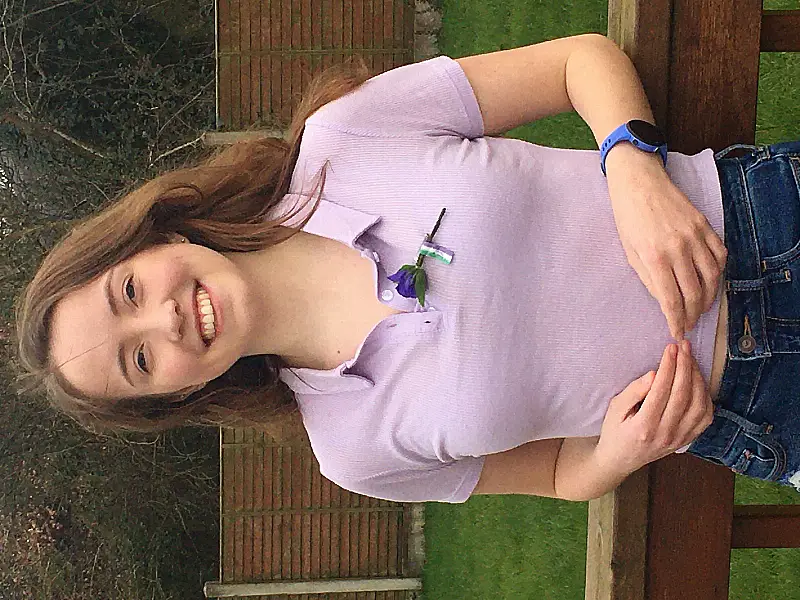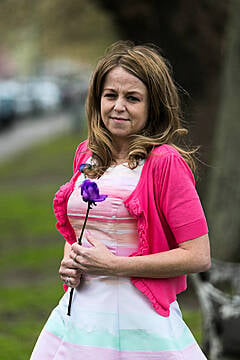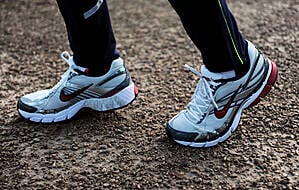The outbreak of Covid-19 triggered widespread fear and serious alarm among the cystic fibrosis community, forcing those living with the inherited illness into isolation.
The arrival of the coronavirus vaccine offers hope to the thousands of people in Ireland with the condition.
Ireland has the highest incidence in the world per head of its indigenous population, with more than 1,400 people living with the degenerative lung and digestive system condition.
A major part of the cystic fibrosis community is the annual fundraising event, 65 Roses Day.

Cystic Fibrosis Ireland receives no Government funding and relies on public donations to raise two million euro a year.
Fundraising provides support to those living with the condition and their families.
It has also led to new treatments for the condition, including Kaftrio, which has made remarkable improvements to those with CF.
Current restrictions mean the annual fundraising day has to be virtual.
Alannah Shesgreen has cystic fibrosis and a cystic fibrosis-related diabetes, but has has not yet had the vaccine.
The 21-year-old student from Tipperary, who is studying law and accounting at University of Limerick, is hoping to do a marathon later this year to help raise funds for the charity.
At the outbreak of the pandemic, Ms Shesgreen and her family, like many others, were forced into isolation.
“It was quite a shock and the reaction from me and my family was to do whatever we could to keep ourselves safe, which meant really cutting off contact from everything and everyone,” she said.
“My mother would make a weekly trip to the shop and we didn’t see anyone until at least May or June.
“It was a fight or flight decision and our approach was to do whatever we could. My sister who is 19 also has CF.
“It was so bizarre to have that feeling of fear when I met with some friends again, it took me by surprise how afraid I was around other people.
“I would see so many meeting and going for drinks with friends, but I didn’t do that because of that huge element of fear and it was hard to watch people move on when I was stuck at home.
“Any charity fundraising is essential to maintain proper services and support. It provides a vast amount of support to those living with CF. I have benefited hugely from the exercise grant.
“It also goes towards providing that element of mental support, particularly during Covid.”
Ms Shesgreen started taking the Kaftrio drug last year and said it has been life-altering.
“The biggest improvement is my coughing, I barely cough at all,” she added.
Ms Shesgreen, however, has not yet received the vaccine as she and many others with CF are in cohort seven.
However, Jillian McNulty, from Longford, has received the vaccine.
The 45-year-old is a long-time cystic fibrosis campaigner and is currently on the waiting list for a kidney transplant.
Ms McNulty travels to hospital three days a week for dialysis treatment, which she said has been difficult throughout Covid-19.
“The mask-wearing is hard but it has to be done. I’m diabetic and asthmatic and kidney failure. I’m the first patient with CF at my hospital that ended up with kidney failure on dialysis,” she added.
“I got my vaccine a couple of weeks ago and I’m really happy I got the AstraZeneca. I’m not worried as I know my team wouldn’t give it to me if it wasn’t safe.
“I know now that my anti-bodies are building every day and I feel so protected. It was very emotional as it had been a long time coming.

“There is light at the end of the tunnel.
“I’m really passionate about fundraising and hold a Valentine’s ball every February but had to cancel it this year. For 65 Roses Day I’ve been doing some challenges and have raised €1,800 so far.”
As Cystic Fibrosis Ireland cannot proceed with its usual 65 Roses Day collections on Friday April 9, the public is instead encouraged to support by donating online at 65RosesDay.ie or by taking part in a 65 Roses challenge.







